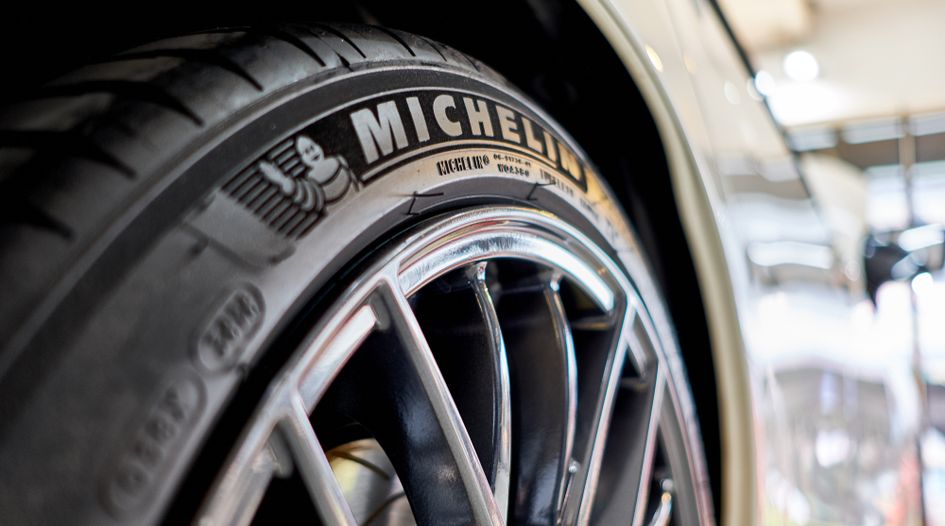Michelin dispute sheds light on when similar trade names constitute unfair competition

The Zhejiang High Court has upheld a first-instance decision that determined infringing use of a trade name that constituted unfair competition. The word ‘Michelin’, which is the name of a French company famous for its tyres, as well as the Michelin Guide, is written ‘米其林’in Chinese – pronounced ‘mi qi lin’. This Chinese name is registered, along with Michelin, in Classes 12 (tyres) and 16 (the guide).
Case background
In 2021 Michelin discovered that a company involved in the canned food industry had changed its name from Zhejiang Huang Yan Second Canned Food Factory to Taizhou Huang Guan Mi Qi Lin Food, in which the ‘Mi Qi Lin’ part was written ‘米奇林’. The first and third characters were the same as those that Michelin had chosen, while the second character was different but is pronounced in the exact same way.
This new name therefore contained a very similar element to Michelin in Chinese and Huang Guan used this new name on the packaging of its products and on its online store. Further, Huang Guan was also using the same name as Michelin in Chinese (with the same second character) on one webpage of its online store, and it was found that Huang Guan was even using the full English name “Taizhou Huang Guan Michelin Food Co Ltd” on a third-party platform.
Huang Guan supplied products to two other companies, Zhejiang Taizhou Huang Guan Manor Food and Taizhou Huangyan Zhong Yi Food, which had their own distribution network.
In September 2021 Michelin sued the three companies before the Ningbo Intermediate People's Court on the grounds of unfair competition based on its trademarks ‘米其林’ (Michelin) and MICHELIN, registered in Classes 12 and 16. This was based on Article 58 of the Trademark Law, which states that using a registered or unregistered trademark in an enterprise’s trade name in a way that misleads the public constitutes unfair competition, which is to be dealt with according to the Anti-Unfair Competition Law.
Court rulings
Before the court, Huang Guan argued that the use of the identical Chinese name was a clerical error on its part and that the use of the full ‘Michelin’ was not its responsibility, but an initiative taken by the third-party platform. These arguments were flatly rejected by the court.
Huang Guan also argued that canned food and tyres were different industries, so they were not competitors. It also claimed that its new name had been registered for more than five years and could therefore not be sued. The other defendants argued that they had merely, according to law, indicated the name of the manufacturer.
In September 2022 the first-instance court issued a judgment determining that the defendants’ acts constituted unfair competition (Zhe 02 Min Chu No 1935, 2021). It ordered the three defendants to stop using the infringing company name and demanded that Huang Guan change its registered company name and pay damages of 150,000 yuan. The three defendants appealed and in March 2023, the Zhejiang High Court issued a final judgment upholding the first-instance decision (2022 Zhe Min Zhong No 1327).
Outcomes and reasoning
This case is typical of enterprise name infringement. The court determined several issues:
- using a mark of another person in a trade name, as stated in Article 58, includes the use of a similar trademark, which constitutes an act of unfair competition;
- when the goods designated by the plaintiff’s trademark are different from the defendant’s industry, unfair competition may be determined without having to recognise the well-known status of the plaintiff’s trademark;
- there was a certain degree of overlap between the consumer groups of both parties, and therefore they were in a competitive relationship;
- rights holders may file civil lawsuits for unfair competition even if the defendant’s company name has been registered for more than five years; and
- the other two defendants that had honestly provided the manufacturer’s information could not use this as an excuse, but in view of their subjective state of good faith, they were exonerated of the obligation to bear compensation liability.
IAM recommends
The Beijing Measure: whether data should be a registered and protected form of intellectual property in China
China’s attention on trade secrets suggests change afoot in 2023
Landmark suit explores right of publicity as it relates to NFT digital playing cards
This is an Insight article, written by a selected partner as part of IAM's co-published content. Read more on Insight
Copyright © Law Business ResearchCompany Number: 03281866 VAT: GB 160 7529 10

